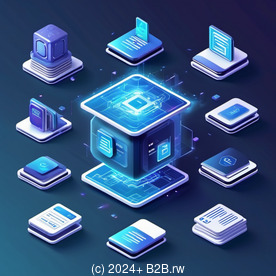
The Importance of Chatbot Integration in E-commerce




General Considerations on Chatbot Integration
Chatbot integration refers to the incorporation of automated conversational agents into various digital platforms, primarily within e-commerce businesses. By utilizing advanced artificial intelligence (AI) and natural language processing (NLP), chatbots simulate human-like interactions, responding to customer inquiries in a conversational manner. The rise of chatbots is indicative of a significant trend towards digital transformation, where organizations seek innovative solutions to improve customer experience, streamline business operations, and enhance engagement with their target audience.
Today's consumers demand instant gratification; they expect immediate responses and assistance at any time of the day or night. Chatbot integration offers a practical solution to these pressing demands. Effectively addressing common inquiries, guiding potential customers through the sales funnels, recommending products tailored to individual preferences, and delivering personalized services are just a few of the many functionalities that chatbots provide. Given this context, chatbot integration is crucial in the digital landscape, allowing businesses to reduce operational costs while enhancing customer satisfaction and loyalty.
The successful deployment of a chatbot begins with extensive planning and meticulous programming. Businesses must consider various factors such as user intent, context, and the data they have available. Understanding customer needs, recognizing frequently posed questions, and integrating sophisticated back-end processing systems are vital components that significantly affect a chatbot's success. The right design and configuration can lead to improved conversion rates, enhanced user engagement, and transformative marketing efforts that foster deeper connections with customers.




Analyzing Chatbot Integration from Various Perspectives
Economic Perspective
An in-depth economic analysis of chatbot integration reveals both potential benefits and costs. The integration of chatbots can lead to significant reductions in labor costs for customer service teams. Numerous case studies indicate that businesses can save up to 30% on customer support expenses through the use of chatbots. These conversational agents can handle thousands of inquiries simultaneously, allowing for efficient management of customer interactions compared to traditional approaches that require larger teams.
The efficiency gains from chatbot implementation not only lower operational expenses but also have a direct correlation with revenue growth. Companies leveraging chatbot technology have reported substantial increases in sales attributed to improved customer interactions, effective marketing strategies, and significantly higher conversion rates. For example, e-commerce businesses employing chatbots for automated customer service have achieved better customer retention rates, leading to repeat purchases and brand loyalty. Therefore, investing in chatbot technology can yield a high return on investment (ROI), translating into improved operational efficiency and enhanced customer retention capabilities, ultimately leading to greater market competitiveness.
Technological Perspective
Chatbot integration heavily relies on sophisticated technologies, including AI, machine learning, and NLP capabilities. These technologies empower chatbots to understand contextual nuances, infer user intent, and engage in dynamic and natural conversations with users. Advanced chatbots can also undergo continuous learning from past interactions, thereby refining their responses and enhancing relevance over time. E-commerce platforms that pioneer chatbot technology, such as Shopify and Zendesk, showcase innovations in conversational bots that can handle intricate customer requests while maintaining an engaging dialogue.
Moreover, chatbots can seamlessly integrate with existing customer relationship management (CRM) systems and various business tools, generating valuable insights from customer interactions and data. This capability allows businesses to personalize customer experiences, tailor product recommendations, and establish meaningful relationships with users. The utilization of chatbots can even enhance sales forecasting by analyzing customer behaviors and suggesting purchasing patterns to business managers, providing a strategic advantage in decision-making. As AI technology continues to advance, chatbots are becoming smarter, more intuitive, and increasingly sophisticated, broadening their application scope across various sectors within e-commerce.
Social Perspective
From a social perspective, chatbot integration fosters enhanced customer engagement through instant feedback and support, particularly during the shopping experience. In a world where consumers have little time to wait, having access to a responsive channel for assistance can make all the difference. A timely and effective response can lead to a positive perception of the brand, as consumers value convenience and efficiency in their shopping journeys. Businesses implementing chatbots experience higher rates of user satisfaction, resulting in repeat business and strong advocacy.
Additionally, chatbots enhance inclusivity by offering multi-language support, thus catering to diverse customer bases. By doing so, they help bridge communication gaps and ensure that all customers can receive guidance tailored to their specific cultural contexts. The ability to address inquiries in multiple languages fosters a sense of belonging and comfort among consumers, which enhances brand loyalty and creates stronger customer relationships in an increasingly global marketplace.
Psychological Perspective
Psychologically, chatbots can significantly influence the customer's decision-making process. When customers receive timely answers to their queries, they typically experience reduced anxiety and uncertainty, essential factors in fostering a positive shopping experience. Chatbots act as effective digital guides throughout the shopping journey, providing reassurance and simplifying complex decisions by presenting relevant facts and recommendations in an engaging manner.
The personalization aspect of chatbot interactions heightens the perception of being valued by customers. When users feel understood and appreciated, they are more inclined to develop emotional connections with a brand, leading to higher rates of loyalty and repeat purchases. Brands that successfully create positive emotional experiences through chatbot interactions tend to outperform their competitors in terms of consumer retention and referral rates.
Legal and Ethical Perspective
From a legal and ethical standpoint, the deployment of chatbots necessitates careful attention to data privacy and compliance with relevant regulatory frameworks. As chatbots often handle sensitive customer informationsuch as personal details, payment methods, and purchasing preferencesbusinesses must ensure adherence to regulations like the General Data Protection Regulation (GDPR) and the California Consumer Privacy Act (CCPA). Compliance involves creating transparent data usage policies, implementing robust consent mechanisms, and developing secure practices to safeguard customer data against breaches.
Furthermore, ethical considerations in chatbot development are essential to maintain consumer trust. Designing a bot that effectively communicates its digital identitymaking it clear that customers are interacting with an AI, not a human agentcan enhance trustworthiness and satisfaction among users. Companies misusing chatbot technology or creating misleading interactions risk damaging their reputation and may face legal repercussions, ultimately undermining customer confidence and loyalty.




Technical and Marketing Analysis of Chatbot Integration
The integration of chatbots in e-commerce encompasses a broad range of technical and marketing dimensions, driving improvements to the overall digital experience for both businesses and consumers. Successful chatbot implementation involves selecting a robust platform, defining clear objectives, and continuously monitoring performance metrics to optimize effectiveness.
Many organizations utilize well-established platforms such as Dialogflow, Microsoft Bot Framework, or bespoke solutions tailored to their specific operational needs. Each chatbot can be designed to perform various functions, from answering frequently posed questions and providing order status updates to offering personalized product suggestions and in-depth customer support through machine learning algorithms.
A practical example can be found in how a sophisticated chatbot may assist a customer in product selection by utilizing data-driven algorithms that assess individual preferences. By identifying user traits and previous purchase patterns, the chatbot can recommend products that past buyers in similar demographics have found appealing. This personalized approach not only enhances user interactions but also fosters a higher likelihood of conversion as customers are directed toward products they are already predisposed to purchase.
Analyzing the Technology Behind Chatbot Integration
The architecture of a chatbot is typically comprised of a combination of rule-based systems or AI-driven models. Rule-based chatbots follow predefined scripts which can limit their usefulness in handling complex inquiries. Conversely, AI-driven chatbots utilize natural language processing to dynamically provide context-aware responses, thus continuously refining their interaction quality through machine learning.
For enterprises seeking successful chatbot implementation, rigorous testing frameworks are essential for evaluating performance. Monitoring user interactions, assessing when the chatbot fails to deliver satisfactory responses, and continuously collecting customer feedback enables ongoing improvements leading to enhanced user experiences over time. Providing users with an enriching, intelligent conversation can heighten user satisfaction and loyalty significantly.
Marketing Opportunities through Chatbot Integration
From a marketing standpoint, chatbots offer abundant opportunities for engagement that can strengthen brand loyalty and increase conversions. For instance, chatbots can be configured to proactively initiate conversations based on user behaviorsuch as pop-up invitations for customers to ask questions when they exhibit hesitation about making a purchase. This strategy ensures that potential buyers receive the support they need when it matters most, ultimately guiding them down the sales funnel more effectively.
Furthermore, by integrating chatbots into popular social media platforms, businesses can respond to customer inquiries where they are already active, such as on Facebook Messenger, Instagram, or Twitter. This strategic approach increases brand visibility and fosters meaningful dialogues with clients. Additionally, chatbots can assist with abandoned cart recovery efforts by sending timely reminders to customers who have left items in their shopping carts, efficiently reclaiming potential revenue that might otherwise be lost to indecision.
Ethical Considerations for Chatbot Utilization
Although chatbots serve as potent tools for enhancing consumer interactions, ethical considerations deserve equal attention. Businesses should ensure that their chatbots are programmed to handle sensitive data responsibly and that they can sufficiently redirect users to human agents when addressing complex or emotionally charged issues.
Moreover, transparency in interactions is critical. Businesses should maintain clarity about the chatbotindicating its digital identityin order to cultivate trust among users. Misleading customers by creating the impression of human interactions can lead to reputational harm that negatively impacts consumer relationships. Ensuring that chatbot deployment aligns with ethical and legal standards fosters an environment of trust and engagement, ultimately benefiting brands and consumers alike.




Conclusion: The Comprehensive Value of Chatbot Integration
In summary, chatbot integration serves as a vital tool for transforming e-commerce operations, offering enhanced customer service, streamlined processes, and increased engagement. Acknowledging the various perspectiveseconomic, technological, social, psychological, and ethicalallows businesses to develop an informed strategy for the effective implementation of chatbot solutions.
As consumer expectations continue to evolve, with demands for timely responses, personalized experiences, and reliable customer support, chatbots present practical solutions to meet these needs and drive profitability. A well-executed chatbot strategy can lead to substantial cost savings, improved customer satisfaction, and increased sales conversion rates, solidifying its position as a key asset for businesses aiming to excel in today's competitive digital landscape.
Transform Your Business with Our Specialized Chatbot Solutions
If you're looking to elevate your customer service and engagement strategies through chatbot integration, our tailored solutions start at just $850. Interested in knowing more? Feel free to contact us at www.b2b.rw using email, phone, or our online form. If you're already convinced about proceeding with the purchase, the price for our chatbot integration service is $850. Please proceed to our Checkout Gateway and use our Payment Processor to pay this amount in favor of our Company, following the provided instructions. Upon completing your payment, please reach out to us via email, phone, or the site with your payment receipt and your details to arrange the chatbot integration service. Thank you for your interest!
